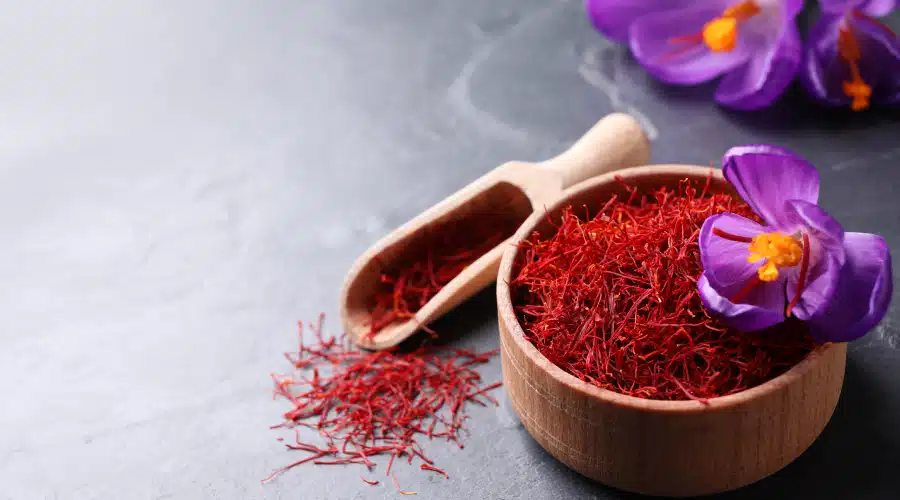Blog
What happens if you take saffron everyday?

The Daily Ritual of Saffron Consumption: Unveiling Effects on Health and Well-Being
In the world of culinary and holistic wellness, saffron, known as the “golden spice,” has captivated civilizations for centuries with its vibrant color, distinctive flavor, and potential health benefits. As more individuals incorporate saffron into their daily routines, the question arises: What happens if you take saffron every day? This exploration delves into the multifaceted aspects of daily saffron consumption, unraveling its effects on physical health, mental well-being, and the potential considerations that come with integrating this precious spice into your daily regimen.
1. The Nutrient Richness of Saffron: A Daily Boost for Vital Elements
Saffron isn’t just prized for its flavor and color; it boasts a wealth of essential nutrients. Packed with manganese, vitamin C, iron, potassium, and a host of antioxidants, saffron contributes to the body’s daily nutritional requirements. Daily consumption may offer a natural and flavorful way to enhance overall nutrient intake, supporting various bodily functions.
2. Saffron’s Potential Mood-Enhancing Effects: A Daily Uplift for Emotional Well-Being
Saffron has garnered attention for its potential mood-enhancing effects, attributed to compounds like crocin and safranal. Research suggests that saffron may influence serotonin levels, the neurotransmitter associated with mood regulation. Taking saffron daily could provide a gentle and natural uplift, potentially contributing to emotional well-being and mental balance.
3. Saffron and Cognitive Function: Daily Support for Brain Health
The potential cognitive benefits of saffron extend to daily consumption. Studies indicate that saffron may have neuroprotective effects, influencing factors related to memory and learning. The spice’s antioxidant properties and impact on neurotransmitter systems suggest that incorporating saffron into daily routines could be a flavorful way to support brain health and cognitive function.
4. Daily Saffron Consumption and Anti-Inflammatory Potential: Soothing the Body
Chronic inflammation is implicated in various health conditions, and saffron’s anti-inflammatory properties may offer daily relief. Compounds like crocetin and safranal exhibit anti-inflammatory effects in studies, suggesting that regular saffron consumption may contribute to soothing inflammation within the body.
5. Saffron’s Impact on Heart Health: Daily Support for Cardiovascular Well-Being
Saffron has been associated with cardiovascular benefits, including the potential to lower blood pressure and improve lipid profiles. Daily saffron consumption may contribute to heart health by promoting healthy blood circulation and supporting optimal cholesterol levels, providing a fragrant ally in the pursuit of cardiovascular well-being.
6. Saffron and Blood Sugar Regulation: Daily Support for Metabolic Harmony
For individuals concerned about blood sugar levels, saffron may offer daily support. Studies suggest that saffron may help regulate blood sugar levels, potentially benefiting those with diabetes or those aiming to maintain metabolic harmony. Including saffron in daily meals could be a flavorful strategy for those mindful of their overall metabolic health.
7. Saffron and Weight Management: Daily Inclusion in a Balanced Lifestyle
Saffron’s potential impact on satiety and mood may contribute to weight management goals. While not a magic solution, incorporating saffron into daily meals could be a flavorful addition to a balanced lifestyle, potentially influencing eating behaviors and promoting mindful eating practices.
8. Daily Saffron Consumption and Antioxidant Defense: Nurturing Cellular Health
The antioxidants in saffron, particularly crocin and crocetin, contribute to its vibrant color and potential health benefits. These compounds serve as powerful antioxidants, neutralizing free radicals that can damage cells. Daily saffron consumption may thus play a role in nurturing cellular health and bolstering the body’s antioxidant defense system.
9. Potential Considerations and Side Effects: A Thoughtful Approach to Daily Saffron Use
While saffron offers a plethora of potential benefits, daily consumers should be aware of potential considerations. Saffron is a potent spice, and excessive intake may lead to adverse effects. Individuals with specific health conditions, pregnant individuals, or those on certain medications should consult healthcare professionals before making saffron a daily dietary staple.
10. Culinary Delight: Daily Saffron Integration into Meals
Beyond its potential health benefits, saffron adds a luxurious and aromatic touch to culinary creations. Incorporating saffron into daily meals can transform ordinary dishes into extraordinary culinary experiences. From savory rice dishes to sweet desserts, the daily inclusion of saffron elevates not just health but also the sensory delight of each meal.
The Daily Tapestry of Saffron’s Influence
In conclusion, the daily consumption of saffron unfolds as a tapestry of potential health benefits and culinary delight. From its nutrient richness to its mood-enhancing effects, saffron emerges as a versatile spice that goes beyond mere flavoring. However, a thoughtful approach is paramount, considering individual health needs and potential side effects. Whether seeking cognitive support, cardiovascular well-being, or simply aiming to enhance the daily culinary experience, the golden spice, when embraced with awareness and moderation, has the potential to weave a daily tapestry of well-being and sensory delight.
FAQ:


